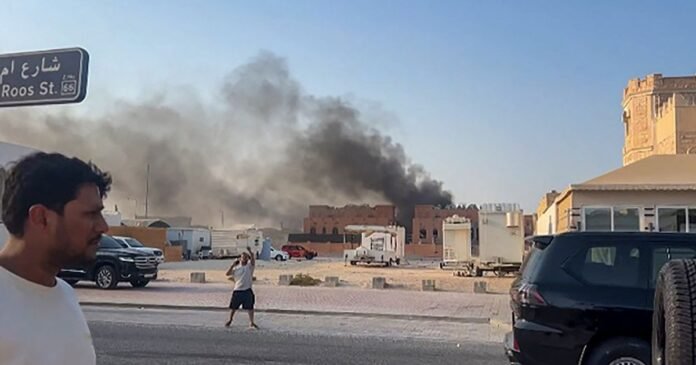Israeli airstrikes on Doha, a key city in the Middle East, signal a significant escalation and a setback for peace efforts in Gaza. Prime Minister Benjamin Netanyahu’s actions appear to be aimed at obstructing any potential peace negotiations in the region and particularly in Gaza.
While Israeli military operations in Lebanon, Syria, Iraq, Yemen, and Iran have been viewed as efforts to weaken Tehran’s influence in the region, Qatar has traditionally played a diplomatic role as a potential mediator for Gaza ceasefires.
The bombing of Doha, a foreign capital, is viewed as a hostile act and a violation of its sovereignty, particularly as the city has been a crucial location for ceasefire discussions involving mediators seeking to end the violence and secure the release of hostages.
Netanyahu’s decision to target Doha undermines progress made by mediators behind the scenes and has faced immediate condemnation. Questions arise about potential US involvement in the airstrike and the feasibility of Israel brokering a peace deal while engaging in military actions.
The attack does not contribute to the release of the remaining hostages in Gaza but instead exacerbates the situation as Israeli airstrikes continue to devastate Gaza City. Israel has claimed responsibility for the bombing, which involved a significant number of fighter bombers, drawing criticism from regional countries.
The targeting of Hamas leadership in Gaza amid discussions for a potential deal raises suspicions of manipulation by Israel. The continued aggression and military actions by Israel, despite international criticism, raise concerns about the ongoing conflict and its impact on civilians in the region.
The relentless airstrikes on Doha and Gaza highlight the extent of aggression by the Israeli government, raising questions about the escalation of violence and the prospects for peace in the region.

